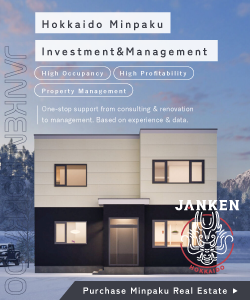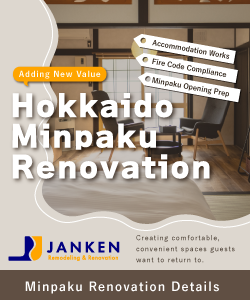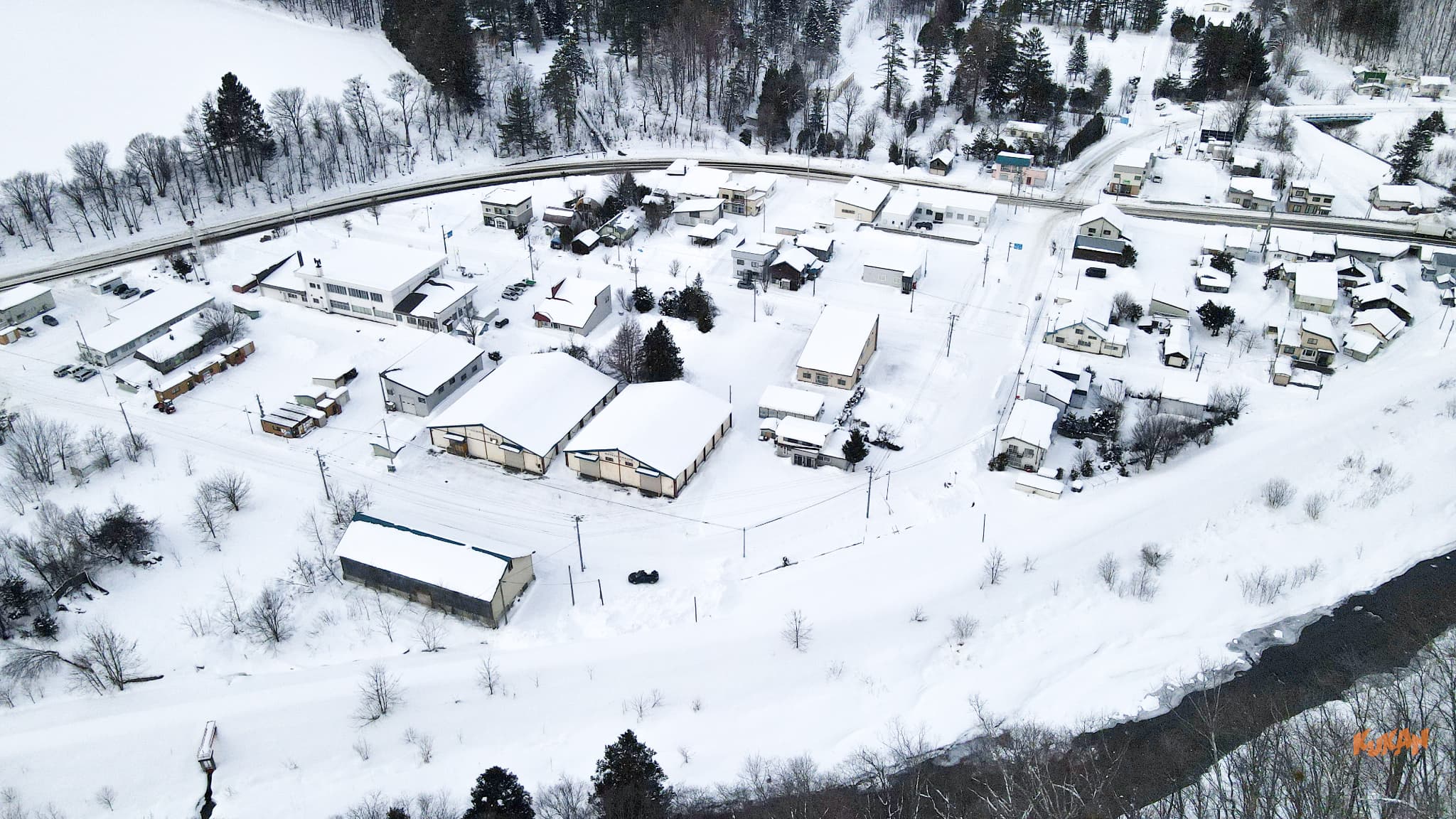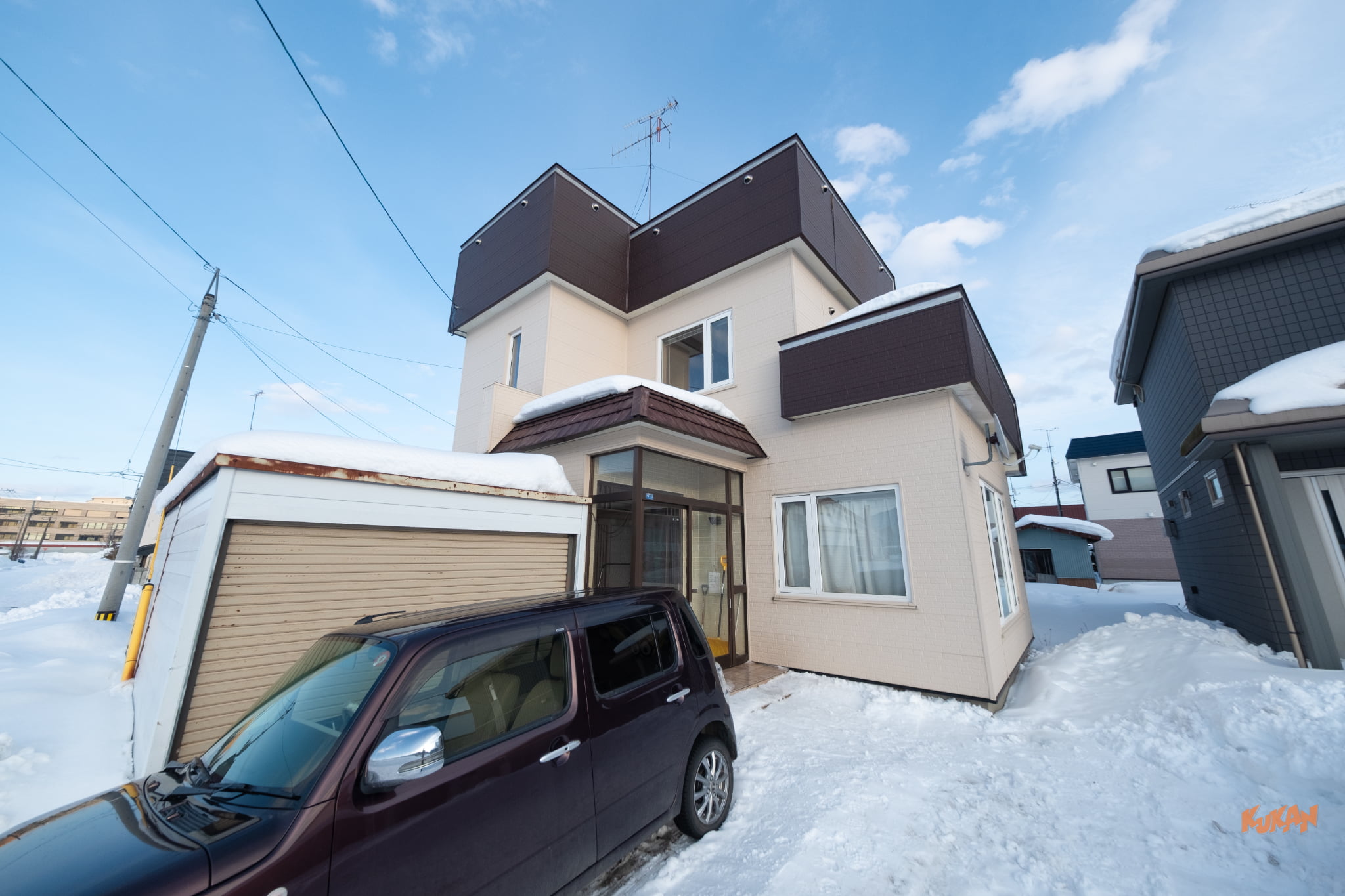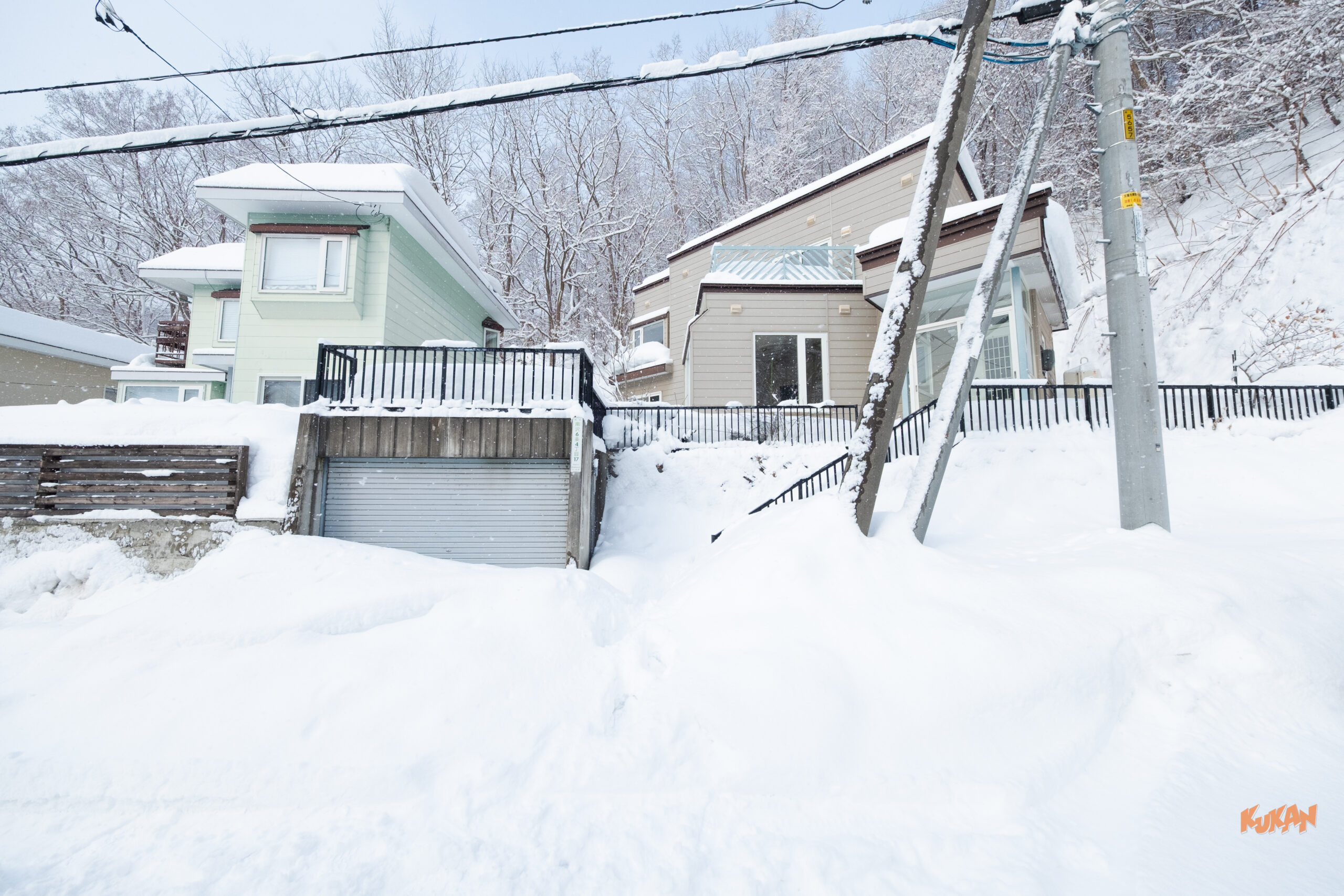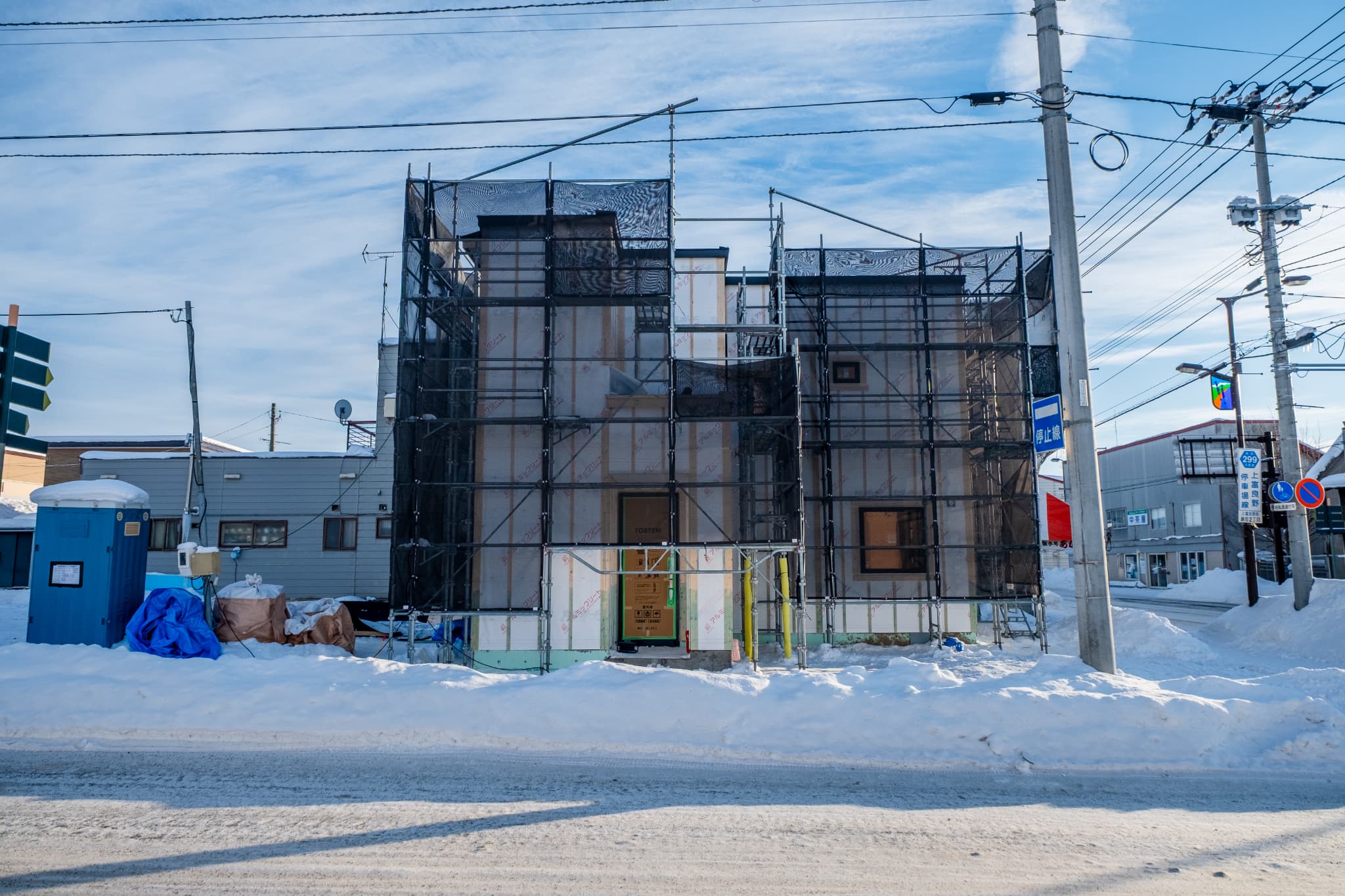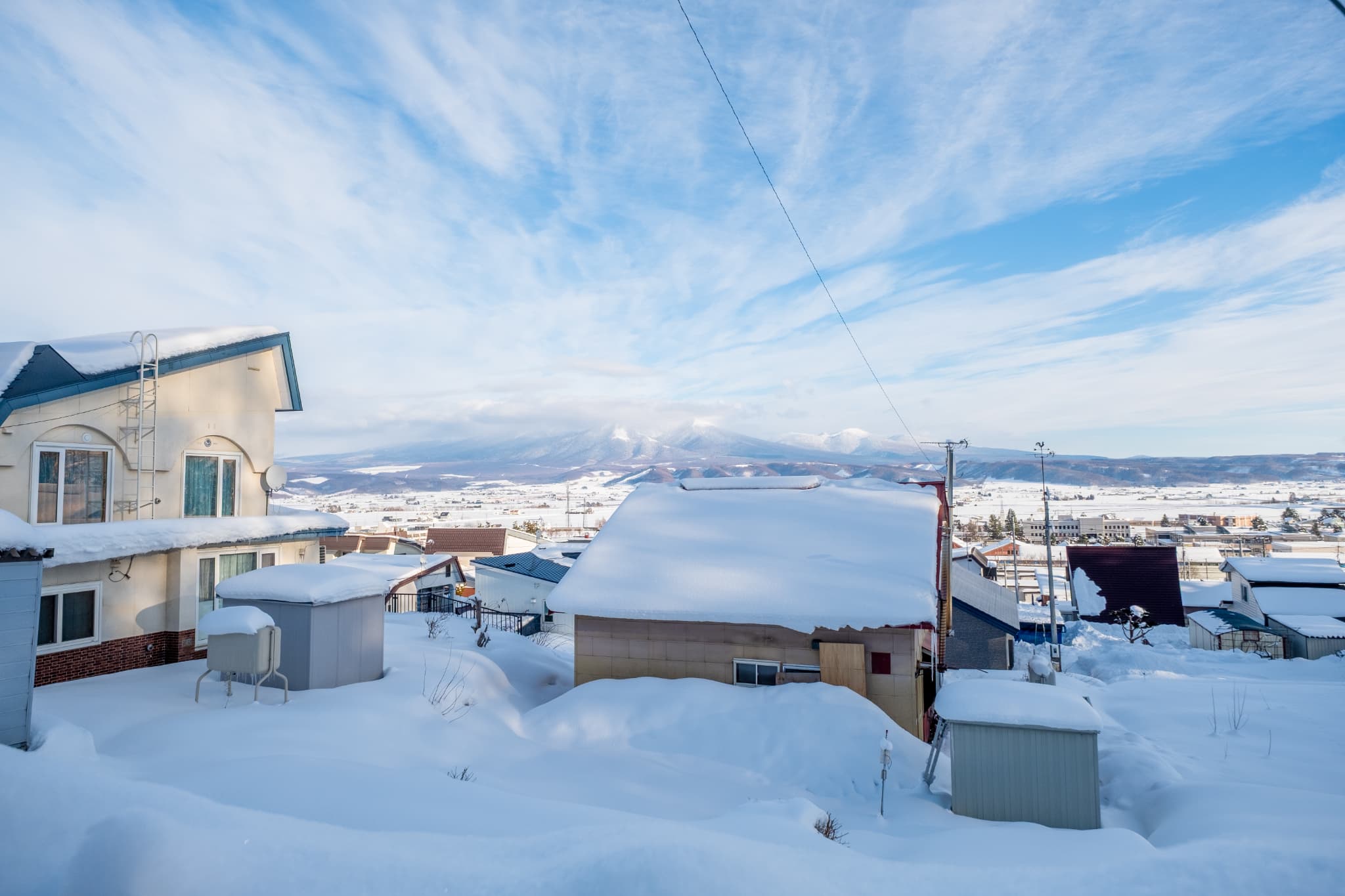How to Start a Vacation Rental Business Using Vacant Homes! Explanation of the Advantages and Disadvantages
2024.09.18

Japan has become a major tourist destination, with more than 25 million foreign visitors annually. A key part of travel is, of course, accommodation, and now, “vacation rentals using vacant homes” are in the spotlight.
This is because it can address both “Japan’s vacant home problem” and “the increased demand for accommodation due to the rise in tourism.”
In this article, we will explain:
●The vacation rental business and the vacant home problem
●The advantages and disadvantages of running a vacation rental business with vacant homes
●Key points to successfully start a vacation rental business while keeping costs low.
Contents
- 1 What is a Vacation Rental Business?
- 2 Three Reasons Why Vacation Rental Business is Gaining Attention
- 2.1 1. The Possibility of Vacation Rentals as a Solution to the Vacant Home Problem and Real Estate Management |Why the Vacation Rental Business is Hot
- 2.2 2.Increase in Foreign Tourists and Deregulation (New Minpaku Law) |Why the Vacation Rental Business is Hot
- 2.3 3.Affordable Accommodation with High Demand |Why the Vacation Rental Business is Hot
- 3 Advantages and Disadvantages of Utilizing Vacant Homes for Vacation Rentals
- 4 Advantages of Using Vacant Homes for Vacation Rentals
- 4.1 1.Transforming Vacant Homes into Revenue Sources |Advantages of Using Vacant Homes for Vacation Rentals
- 4.2 2.Capturing Accommodation Demand Due to the Increase in Foreign Tourists |Advantages of Using Vacant Homes for Vacation Rentals
- 4.3 3.No Need to Acquire New Properties for Vacation Rentals |Advantages of Using Vacant Homes for Vacation Rentals
- 4.4 4.Preventing Deterioration of Vacant Homes and Enhancing Asset Value |Advantages of Using Vacant Homes for Vacation Rentals
- 5 Disadvantages of Utilizing Vacant Homes for Vacation Rentals
- 5.1 1.High Renovation Costs May Be Required |Disadvantages of Using Vacant Homes for Vacation Rentals
- 5.2 2.Cultural and Language Differences May Lead to Troubles |Disadvantages of Using Vacant Homes for Vacation Rentals
- 5.3 3.For Condos, Consultation with the Management Association Is Necessary |Disadvantages of Using Vacant Homes for Vacation Rentals
- 5.4 4.Under the New Minpaku Law, There Is a 180-Day Operation Limit |Disadvantages of Using Vacant Homes for Vacation Rentals
- 6 Key Points for Successfully Starting a Vacation Rental Business While Keeping Costs Low
- 7 Conclusion
- 8 If you’re considering vacation rental investment in Hokkaido, choose JANKEN.
What is a Vacation Rental Business?

A vacation rental refers to a lodging business where individuals rent out their homes or a room (or the entire house) to travelers or businesspeople for a fee.
In popular tourist destinations like Niseko and Furano, the supply of accommodation has not kept up with the increase in foreign tourists, making vacation rentals a business that has been gaining attention in recent years.
Unlike hotels and ryokans (traditional Japanese inns), vacation rentals are equipped with amenities such as kitchens and living rooms, allowing guests to stay as if they were in their own home. This feature has made vacation rentals particularly popular among long-term tourists and foreign visitors.
Three Reasons Why Vacation Rental Business is Gaining Attention

Traditionally, hotels and ryokans have been the common choices for accommodation during travel or business trips. However, vacation rentals have now become a viable alternative.
Here, we will explain three reasons why the vacation rental business is gaining attention and four motivations for starting one.
1. The Possibility of Vacation Rentals as a Solution to the Vacant Home Problem and Real Estate Management
|Why the Vacation Rental Business is Hot
The first reason why vacation rentals are gaining traction is the increasing demand for utilizing vacant homes across Japan.
Let’s take a closer look.
The Current Situation of the Vacant Home Problem
Japan’s vacant home problem has become more serious year by year. According to the “2018 Housing and Land Survey,” the vacant home rate hit a record high of 18.6% in 2018. Even in large metropolitan areas, the number of vacant homes is on the rise, with 805,000 vacant homes recorded in Tokyo alone in 2013.
Both the public and private sectors are increasingly concerned about the ongoing increase in vacant homes. However, factors such as population decline, urbanization, aging society, and the shift to nuclear families are driving the continued rise in vacant homes.
The Background of the Vacant Home Problem
There are three main reasons for the increase in vacant homes.
The first factor is the spread of the “new house-centric policy” driven by Japan’s housing policies.
After World War II, the government promoted home ownership through low-interest loans from the Government Housing Loan Corporation and tax breaks on home loans. While this policy led to a surge in new home construction, the market for used homes did not mature. This “scrap and build” approach fueled the belief in new homes, contributing to the rise of vacant older homes.
The second factor is “population decline and urbanization.”
As rural areas depopulate, young people move to urban centers, leaving behind regions where only elderly people remain. This has resulted in a higher vacant home rate in rural areas. Moreover, when children inherit their parents’ homes, they often choose not to live there, adding to the rise in vacant homes.
The third factor is Japan’s “property tax system.”
Property tax on land with a house is reduced to one-sixth compared to vacant land, making it financially advantageous to leave a vacant home standing rather than demolishing it. This system encourages homeowners to leave vacant homes unattended for economic reasons.
Government Measures for Vacant Homes: Initiatives and Success Stories of “Vacant Home Banks”
The government has been addressing the vacant home issue through measures such as the “Act on Special Measures Concerning Vacant Houses” and the establishment of vacant home banks.
Local governments have also begun supporting the use of vacant homes for vacation rentals, and there have been some successful cases. For examples of these government-led vacation rental initiatives, please see here.
Success stories include “lodging facilities using vacant homes that offer experiences unique to the region, such as agricultural work” and “vacation rentals in renovated traditional homes with attached cafes using barns.” These initiatives have been shared as models for those considering starting a vacation rental business.
However, while some successful examples have emerged, the overall situation has not improved, and the number of vacant homes is expected to continue increasing if left as it is.
The Potential of the Vacation Rental Business
In this context, the vacation rental business is being recognized as an effective solution to the vacant home problem.
Vacation rentals provide a new way to repurpose vacant homes by offering them as accommodation to tourists. Renovating vacant homes and making them available to travelers creates three main advantages.
The first advantage is that “vacant home owners can generate income from property management.”
By utilizing a vacant home as a vacation rental, owners can make use of properties that had been left unused for extended periods, while keeping management costs low and earning revenue.
The second advantage is “revitalizing the local economy.”
Renovating and repurposing aging vacant homes gives them new value, attracting tourists and invigorating local restaurants and shops, thereby stimulating the overall local economy. Additionally, the influx of tourists can lead to rediscovery of the region’s charm, potentially attracting new investments and residents.
The third advantage is “enhancing crime prevention and disaster preparedness.”
Leaving vacant homes unattended poses several risks from a security and disaster preparedness perspective. By using vacant homes as vacation rentals, these properties are managed, reducing the risk of arson or illegal trespassing. Furthermore, vacant homes could potentially be used as shelters during natural disasters.
2.Increase in Foreign Tourists and Deregulation (New Minpaku Law)
|Why the Vacation Rental Business is Hot
The second reason why the vacation rental business is gaining traction is the shortage of accommodation due to the increase in inbound tourism.
To meet the demand, regulations have been relaxed, making it easier to enter the vacation rental business.
Let’s take a closer look.
Increase in Foreign Tourists Visiting Japan and the Shortage of Accommodation
One of the major reasons why the vacation rental business is attracting attention is the increase in foreign tourists visiting Japan, which has led to a shortage of accommodation.
According to statistics from the Japan National Tourism Organization (JNTO), 28.691 million foreign tourists visited Japan in 2017, an increase of 19.3% from the previous year.
The government has set goals to attract 40 million tourists by 2020 and 60 million by 2030 as part of its “Tourism Vision to Support the Future of Japan.”
Shortage of Accommodation and Deregulation (Expansion of Legal Vacation Rentals)
The rapid increase in foreign tourists has made the shortage of accommodation more apparent.
As a result, vacation rentals have garnered attention.
Previously, in order to legally operate a vacation rental, it was necessary to comply with the Ryokan Business Act, which required specific facilities and permits.
However, deregulation has made special district vacation rentals possible in National Strategic Special Zones, and the implementation of the Private Lodging Business Act (New Minpaku Law) has created an environment where it is easier to operate vacation rentals legally.
Responding to Inbound Demand and Diverse Accommodation Needs
The increase in inbound demand is also a factor in the rising popularity of vacation rentals.
With policies like the Tokyo Olympics and the government’s inbound tourism strategy focused on making Japan a tourism-oriented country, the number of foreign tourists continues to rise.
As the number of foreign tourists increases, so does the demand for accommodation. Vacation rentals not only serve as an alternative to hotels and ryokans that struggle to keep up with demand, but they also provide new value by catering to diverse lodging needs.
In particular, vacation rentals are equipped with amenities such as kitchens and living rooms, allowing guests to “stay as if they were at home,” making them highly popular among long-term tourists and wealthy foreign visitors.
3.Affordable Accommodation with High Demand
|Why the Vacation Rental Business is Hot
The third reason why the vacation rental business is gaining attention is the “affordability of vacation rentals.”
A survey conducted by Mitsubishi UFJ Research & Consulting in 2019 found that about 88% of respondents cited “affordable accommodation” as a major factor, which is backed by data.
The biggest advantage of the vacation rental business is that it offers lower prices compared to hotels and ryokans.
Moreover, with the current weak yen, the affordability of vacation rentals has become even more attractive to foreign tourists.
Advantages and Disadvantages of Utilizing Vacant Homes for Vacation Rentals

In the previous section, we discussed the reasons why the vacation rental business is gaining attention.
We also explained how the vacation rental business can serve as a solution to the vacant home problem.
In this section, we will focus on “vacant homes” and explain the advantages and disadvantages of using them for vacation rental businesses.
Advantages of Using Vacant Homes for Vacation Rentals

As mentioned earlier, the vacation rental business is currently drawing attention from both the public and private sectors as a solution to the vacant home problem.
Here, we will explain four advantages of using vacant homes for vacation rentals.
1.Transforming Vacant Homes into Revenue Sources
|Advantages of Using Vacant Homes for Vacation Rentals
The biggest advantage for vacant home owners in operating a vacation rental is the ability to make use of an unused property and generate income.
Vacant homes incur taxes and maintenance costs just by being owned, but by operating them as vacation rentals, owners can turn “real estate that only incurs costs” into “assets that generate income.”
2.Capturing Accommodation Demand Due to the Increase in Foreign Tourists
|Advantages of Using Vacant Homes for Vacation Rentals
In 2019, the number of foreign tourists visiting Japan reached a record high of 31.88 million, solidifying Japan’s reputation as a popular global tourist destination.
With the increase in tourists, the shortage of accommodation became apparent, and vacation rentals gained attention as a solution.
A survey in 2018 revealed that over 80% of users of vacation rental facilities in Japan were foreign tourists, highlighting the significant demand for vacation rentals.
3.No Need to Acquire New Properties for Vacation Rentals
|Advantages of Using Vacant Homes for Vacation Rentals
Operating a vacation rental requires a property or facility, and if one does not already own a property, it would need to be acquired.
However, if you already own a vacant home, there is no need for additional property acquisition costs, significantly reducing initial expenses.
This is a huge advantage. By eliminating the high costs associated with property purchase, you can reduce your initial investment and allocate those funds to other operational expenses.
Additionally, since vacation rentals are not rented out long-term, it is possible to keep initial costs low by conducting only minimal renovations and repairs.
In the case of renting out a property, significant renovations are often required to attract tenants. However, for vacation rentals, as long as basic facilities and cleanliness are maintained, operations can begin.
For this reason, the initial cost barrier is lower for those who already own a vacant home and want to start a vacation rental.
4.Preventing Deterioration of Vacant Homes and Enhancing Asset Value
|Advantages of Using Vacant Homes for Vacation Rentals
Leaving a vacant home unattended accelerates deterioration, negatively impacting the surrounding environment and increasing the risk of being designated a “special vacant home.”
Proper maintenance and management are essential, but regularly visiting the property for inspections, cleaning, and repairs takes time, effort, and money.
However, by operating a vacation rental, these tasks can be carried out simultaneously.
Since guests will regularly use the property, it becomes easier to notice any abnormalities in the building or facilities, allowing for thorough maintenance and management of the vacant home.
Typically, the value of residential real estate is judged based on the age of the property and its condition. Vacant homes that have deteriorated significantly are difficult to sell.
However, a vacant home that has performed well as a vacation rental can be sold as a business property for a higher price.
When selling a property as a business asset, the potential for generating profit becomes a key factor. If the property consistently earns rental income, it can be sold under favorable conditions.
Disadvantages of Utilizing Vacant Homes for Vacation Rentals
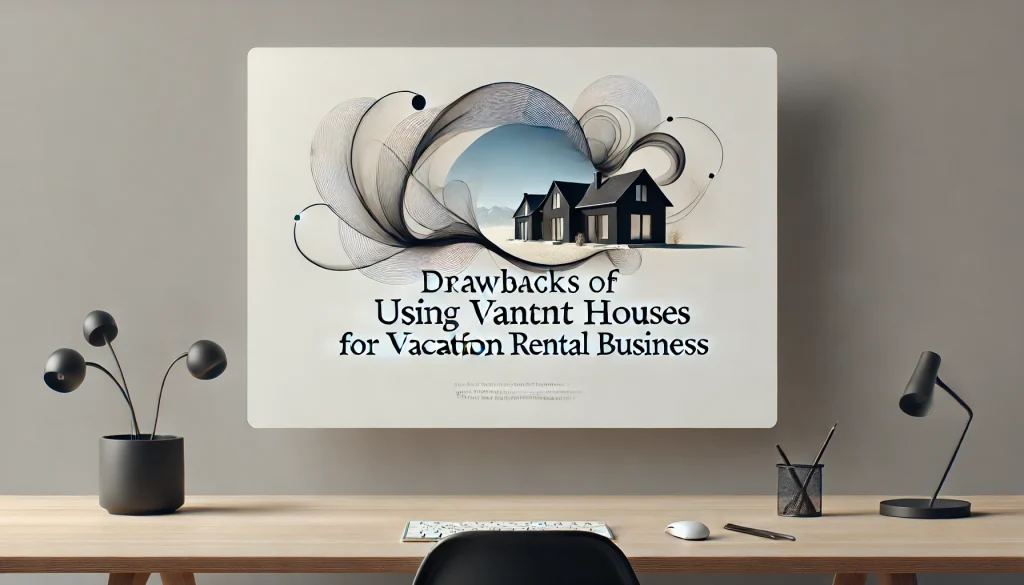
So far, we have discussed the advantages of starting a vacation rental using vacant homes. However, where there are advantages, there are also disadvantages that need attention.
To avoid regrets after starting a vacation rental, let’s take a look at the potential disadvantages in this section.
Here are four disadvantages of starting a vacation rental with a vacant home.
1.High Renovation Costs May Be Required
|Disadvantages of Using Vacant Homes for Vacation Rentals
Since vacation rentals involve “providing paid accommodation services,” the facility must meet a certain level of quality.
However, many vacant homes are not attractive enough to offer as vacation rentals in their current state, requiring renovations.
As a result, significant costs may be required to improve sanitation and design, sometimes exceeding 10 million yen in investment.
Initial costs may be higher than expected, so it’s important to prepare funds strategically.
2.Cultural and Language Differences May Lead to Troubles
|Disadvantages of Using Vacant Homes for Vacation Rentals
Another disadvantage of operating a vacation rental is the potential for trouble with foreign tourists.
Differences in language and culture can lead to issues such as improper waste disposal, noise, or damage to facilities. (It is recommended to prepare a user guide in foreign languages.)
In particular, problems like scattered garbage, broken equipment, or theft are difficult to resolve when dealing with foreign guests, and many owners are left with no choice but to accept the losses.
Additionally, many operators want to provide extensive amenities to adhere to the Japanese “spirit of hospitality,” but this can increase the risk of damage or theft.
3.For Condos, Consultation with the Management Association Is Necessary
|Disadvantages of Using Vacant Homes for Vacation Rentals
If you plan to use a vacant unit in a condominium for vacation rentals, you must first consult the condominium management association.
With the enforcement of the New Minpaku Law, many condominium management associations have introduced their own regulations banning vacation rentals.
Even if the management regulations do not explicitly ban vacation rentals, permission from the management association may still be required to operate one.
In condominiums where vacation rentals are prohibited by the management association, you will not be able to operate a rental, so this needs to be carefully considered.
Additionally, in rental condominiums, subletting is often prohibited in the lease agreement, and violating this could result in the landlord terminating the contract.
To avoid disputes with the management association or landlord, it’s essential to carefully review the condominium regulations and lease agreement before starting a vacation rental business.
4.Under the New Minpaku Law, There Is a 180-Day Operation Limit
|Disadvantages of Using Vacant Homes for Vacation Rentals
Under the New Minpaku Law, there is a restriction that limits operation to 180 days per year, which poses a significant disadvantage for vacation rental businesses.
With the restriction allowing operations for only about half of the year, it may be difficult to balance operational costs and profits if the occupancy rate is low.
Depending on the location, it may be challenging to secure efficient revenue.
To turn a profit within this limitation, strategic operations are required, such as focusing on peak seasons, enhancing marketing efforts, or exploring alternative uses during non-operational periods (such as renting the property as a weekly rental or event space).
Key Points for Successfully Starting a Vacation Rental Business While Keeping Costs Low

Here, we will share key points for successfully starting a vacation rental business while keeping costs low.
There are four main important points to consider.
1.Operate a Vacation Rental Business in Areas Suitable for Vacation Rentals
The best areas for vacation rentals are those with good access to tourist destinations and located within a 5 to 10-minute walking distance.
However, it’s not enough to be near a famous tourist spot; the area must have high accommodation demand.
Check accommodation booking sites. If there are many accommodations priced around 3,000 yen per night nearby, competition will be fierce, and it may be difficult to operate a vacation rental.
On the other hand, in areas with few affordable accommodations, the demand for vacation rentals may rise. Selecting the right location is key to the success of your vacation rental business.
Our company recommends the world-famous tourist destination Niseko Furano, which attracts about 2 million tourists annually and had over 150,000 foreign tourist overnight stays in 2019, surpassing even Niseko in the number of overnight stays.
2.Utilize the Vacant Home Bank
Once you’ve selected a suitable area for vacation rentals, using the local government’s vacant home bank is one option.
A vacant home bank is a website managed by local governments that introduces properties for sale or rent, often for relocation or community exchange purposes.
Unlike real estate agencies, these are government-held properties, meaning you might find hidden gem properties that are not listed elsewhere.
If you’re interested in starting a vacation rental business, consider looking for affordable and attractive properties through a vacant home bank.
・Tsu City’s Vacant Home Bank (Vacant Home Bank ①)
Tsu City is the capital of Mie Prefecture and is known as a historic castle town.
It faces Ise Bay, offering rich natural scenery, and has famous attractions such as the Tsu Festival and Tsu Kannon.
In addition to its excellent access to Ise Shrine, it is also an industrial hub with a bustling economy.
・Owase City’s Vacant Home Bank (Vacant Home Bank ②)
Owase City is located in the southern part of Mie Prefecture and is a natural port town facing Kumano-nada.
It is known for its high rainfall throughout the year, abundant seafood such as yellowtail and red sea bream, and the beautiful rias coastline.
Owase is also the gateway to the Kumano Kodo, a historic pilgrimage route that attracts tourists with its cultural heritage and warm climate.
・Iga City’s Vacant Home Bank (Vacant Home Bank ③)
Iga City is historically significant as a major transportation hub and is known for Iga-style ninjas and the famous haiku poet Matsuo Basho.
It is rich in specialty products, including Iga kumihimo (braided cords), Iga beef, Iga sake, and Iga rice.
Recently, the “Iga no Sato MokuMoku Handmade Farm” has gained popularity as a tourist destination, offering hot springs and agricultural experiences, contributing to its increasing tourism.
3.Take Advantage of Local Government Grants for Renovating Vacant Homes
When renovating a vacant home to use as a vacation rental, it’s advisable to utilize local government grants.
By using programs like the “Vacant Home Utilization Support Program” or the “Vacant Home Renovation Subsidy Program,” you may be eligible to receive a subsidy covering part of the renovation costs.
However, the types of vacant homes and the subsidy amounts vary by municipality, so it’s important to check in advance whether your vacant home is eligible.
4.Rely on Vacation Rental Management Experts (“Vacation Rental Outsourcing Companies”)
When starting a vacation rental with a vacant home, it’s important to contract with a trustworthy private lodging management company.
Since the operation is non-resident, if self-management is difficult, it’s common to use an outsourcing company to manage operations.
Typically, the commission for outsourcing companies is around 20% of sales. Since there’s not much variation in fees, it’s important to focus on the services offered when choosing a company.
For example, check whether the company ensures high cleaning standards, provides emergency response services, and offers strong marketing support to maximize your profit.
Additionally, reviewing ratings and reputation will help you find a company that meets your needs, which is key to success.
Conclusion

Japan has become a major tourist destination, with more than 25 million foreign visitors annually.
In this article, we explained the growing trend of “vacation rentals using vacant homes” in Japan.
To summarize:
●The vacation rental business is expected to solve both the vacant home problem and the growing tourism demand.
●When starting a vacation rental business with a vacant home, carefully consider the advantages and disadvantages.
●To run a vacation rental business wisely while keeping costs low, make use of vacation rental management companies and other key strategies.
If you’re considering vacation rental investment in Hokkaido, choose JANKEN.

JANKEN is a service specializing in vacation rental investment.
Based on the expertise we’ve developed and local information that is often not available online, we support investors through every phase, from property acquisition to vacation rental operation.
Feel free to reach out if you’re considering vacation rental investment in Hokkaido!







